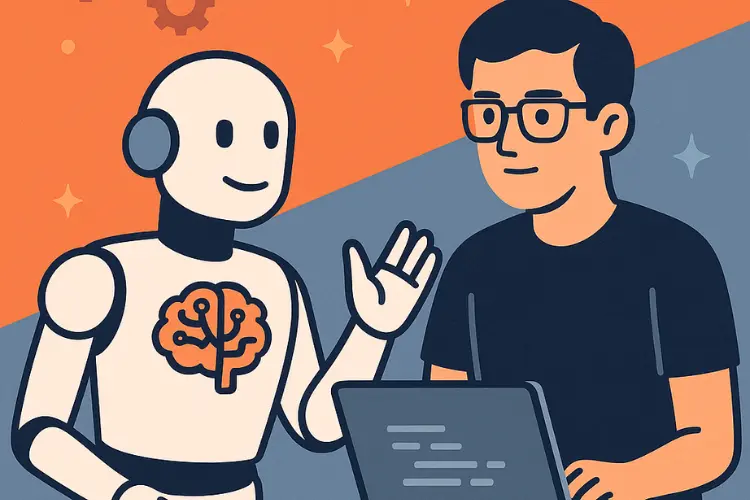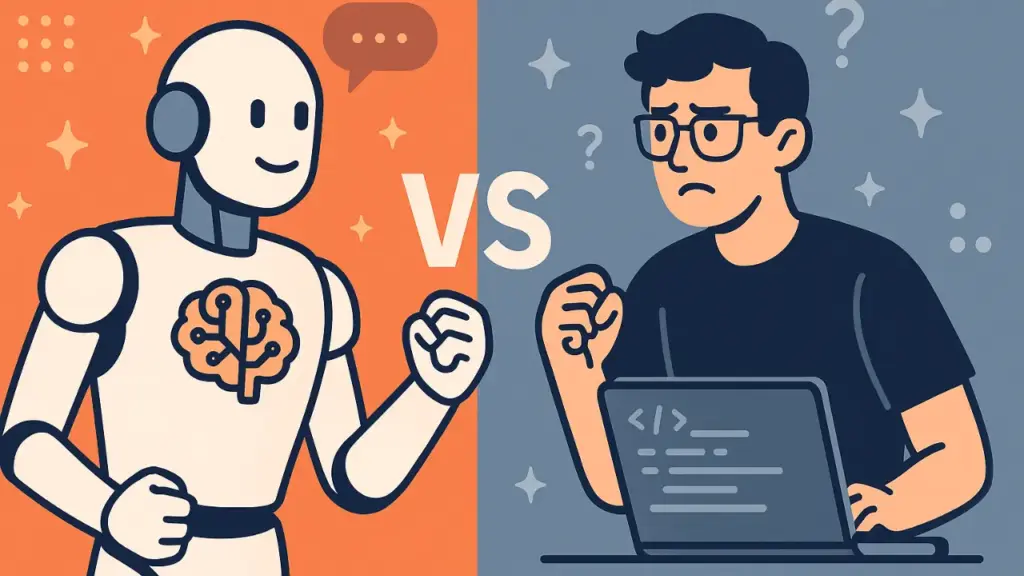1. Introduction: The AI Agent Hype
AI agents are everywhere—in the news, on developer forums, and even in pitch decks. Tools like Devin, AutoGPT, and AgentGPT promise to transform how we build software. They claim they can write code, debug errors, and even ship full applications with minimal human input. These claims have sparked equal amounts of excitement and fear.
But how much of it is real? And more importantly, how much is useful?
Let’s dive into the state of AI in software development and uncover the real picture behind the hype.
2. What Are AI Agents and Why Are They Trending?
AI agents are software tools that use language models and automation to perform complex tasks. Instead of answering one question at a time like traditional chatbots, AI agents work through tasks in multiple steps—like a junior developer following instructions.
They’re built on top of large language models like GPT-4, Claude, or Gemini, and use plugins or APIs to search the web, write code, and execute commands.
Some trending AI agents include:
- Devin – A claimed “AI software engineer” that can plan and build end-to-end applications.
- AutoGPT – An autonomous agent that creates and executes tasks based on goals you set.
- AgentGPT – A web-based AI agent interface with customizable workflows.
These tools are trending because they hint at a future where coding might be semi-automated. But what’s working today is still far from replacing developers.
3. Developer Jobs Are Growing, Not Shrinking
Despite the buzz around automation, software developer jobs are increasing. Multiple reports from 2023 and 2024 show a rise in hiring for engineers, especially in AI-related roles.
Why? Because real software development requires:
- Contextual understanding
- Architecture planning
- Security awareness
- Real-world testing and debugging
AI tools can assist, but they don’t understand business context, stakeholder needs, or long-term maintainability. Developers still do.
Even at AI-first companies like OpenAI or Anthropic, human engineers are at the core of progress. AI is an accelerant, not a replacement.
4. Real-World Use Cases of AI in Software Development
AI is already helping developers in valuable ways:
- Code suggestion: Tools like GitHub Copilot speed up writing boilerplate code.
- Documentation: AI can auto-generate inline comments and README files.
- Debugging support: AI helps detect syntax errors or suggest improvements.
- Testing assistance: Tools create unit tests or recommend edge case coverage.
Companies that adopt these tools wisely are improving productivity without cutting human jobs. AI helps reduce repetitive work—giving developers more time to think critically and build better systems.
Some practical examples:
- Shopify uses AI to help developers write frontend code faster.
- Replit’s Ghostwriter AI assists in creating and refactoring code for side projects and startups.
- Meta uses internal AI tools to track bugs across massive codebases.
None of these eliminate engineers. They just reduce grunt work.
5. The Pitfalls of Over-Reliance on AI Tools
Despite their benefits, AI agents come with significant limitations:
- Accuracy issues: AI-generated code often contains bugs or logic errors.
- Security concerns: AI can unknowingly introduce vulnerabilities.
- Overconfidence: AI tools may confidently suggest incorrect answers.
- Contextual blind spots: AI doesn’t know your company’s business rules or product goals.
- Compliance risks: Sensitive data might accidentally be used in training models or cloud APIs.
Businesses that over-rely on AI could suffer from technical debt or legal problems. You need humans to review, test, and maintain anything AI touches.
Another risk: skill decay. Junior developers relying too much on AI might never fully learn the fundamentals. That’s dangerous for long-term software health.
6. Strategic Insights: How Companies Should Approach AI
To get real value from AI, companies must be strategic. Here’s how:
- Augment, don’t replace.
Use AI to make your teams more productive, not to shrink them.
- Upskill your developers.
Encourage learning how AI works—prompt engineering, API integrations, and model limitations.
- Create AI guardrails.
Set policies for code review, data usage, and performance testing. AI should follow best practices, not define them.
- Track ROI.
Measure AI’s impact in terms of delivery time, bug rate, and team satisfaction—not hype metrics like “lines of code written.”
- Build internal tooling.
Custom AI workflows often outperform generic models. If you can, fine-tune AI on your internal codebase or use vector search with private repositories.
AI is a tool, not a strategy. It works best when aligned with business goals, development workflows, and strong engineering culture.
7. The Future of AI and Software Development
What lies ahead?
The next few years will likely bring more realistic AI integrations. Some predictions:
- Smarter copilots: Better context-awareness and project-specific suggestions.
- Workflow automation: Agents handling non-coding tasks like ticket triaging or environment setup.
- AI pair programming: Real-time assistance across teams and projects.
- Embedded AI in IDEs: Seamless guidance inside VS Code, JetBrains, and other popular environments.
But even by 2030, we’re unlikely to see fully autonomous development. The complexity of modern software—and the importance of human judgment—means developers will stay in the loop.
Instead, developers who know how to work with AI will thrive. They’ll build faster, debug smarter, and deliver better outcomes.

8. Conclusion: Grounded Optimism Over Blind Hype
AI agents are impressive. But they’re not magical.
We’re in a stage of rapid experimentation, not stable execution. Companies that adopt AI wisely—balancing human input with machine speed—will come out on top.
Developer jobs are not going away. They’re evolving. Coders who learn to collaborate with AI will remain essential to innovation.
At StartupHakk, we believe in practical, no-hype tech insights. The future isn’t AI vs. developers—it’s AI with developers. Stay sharp. Stay human. Stay ahead.




